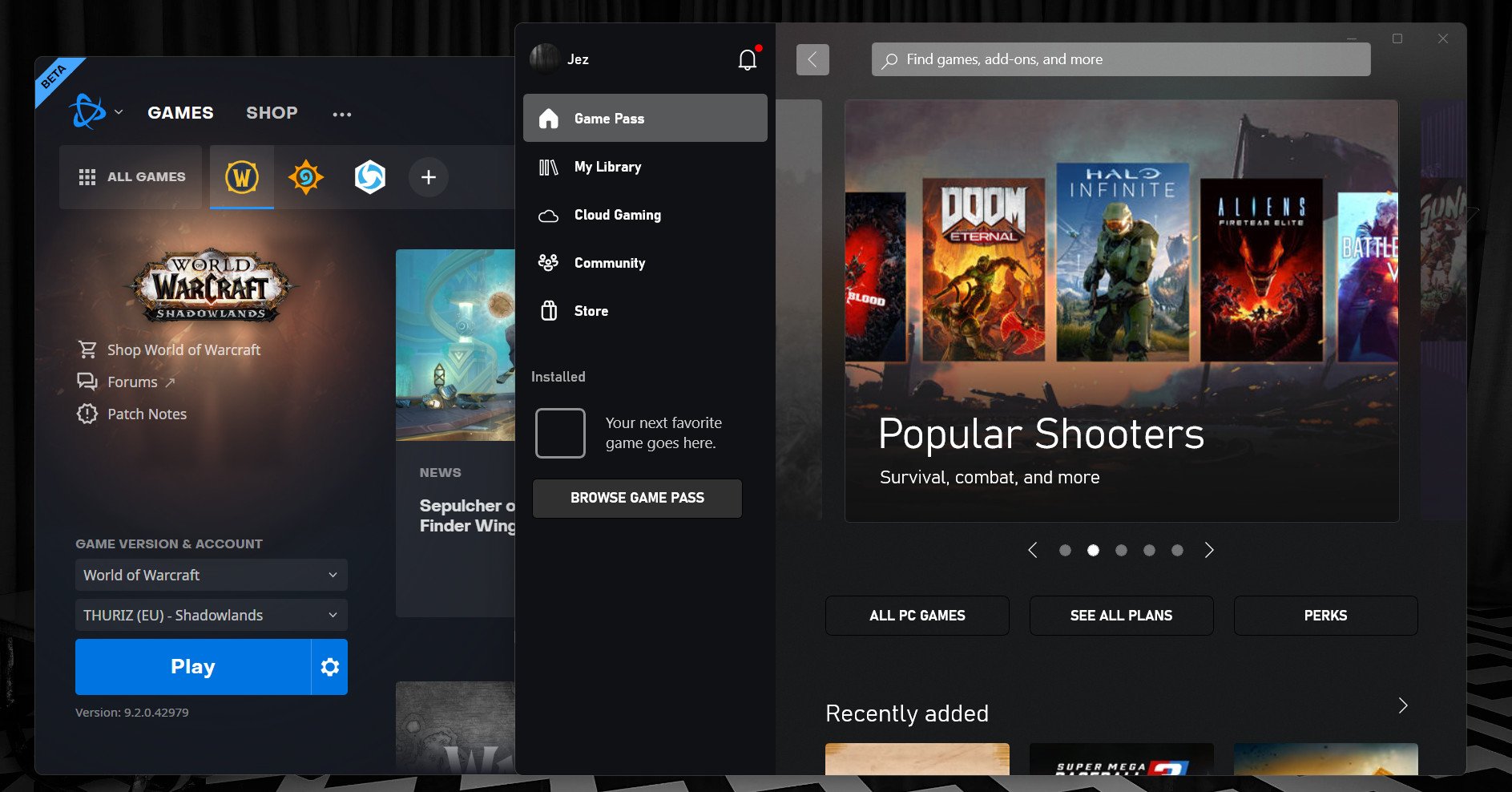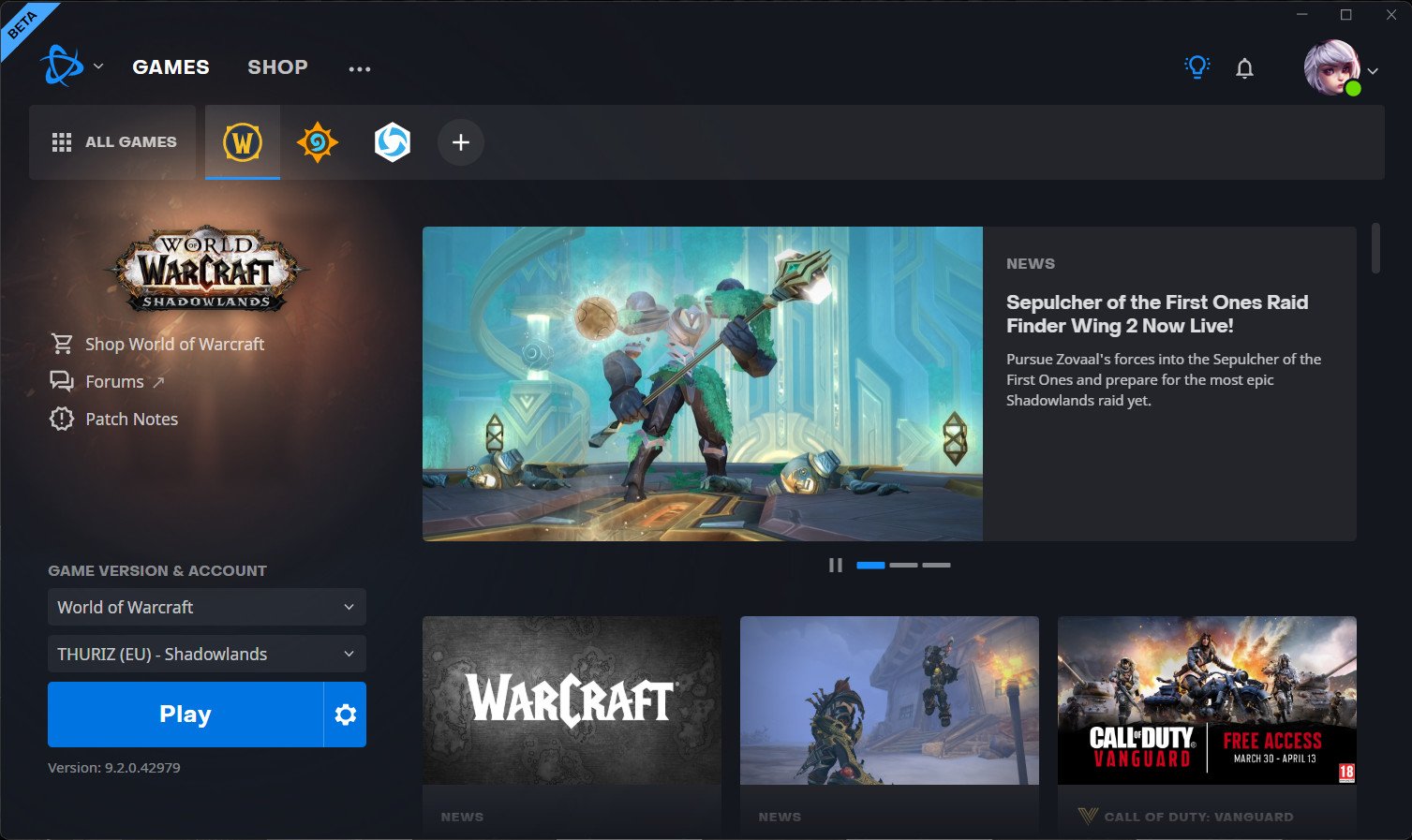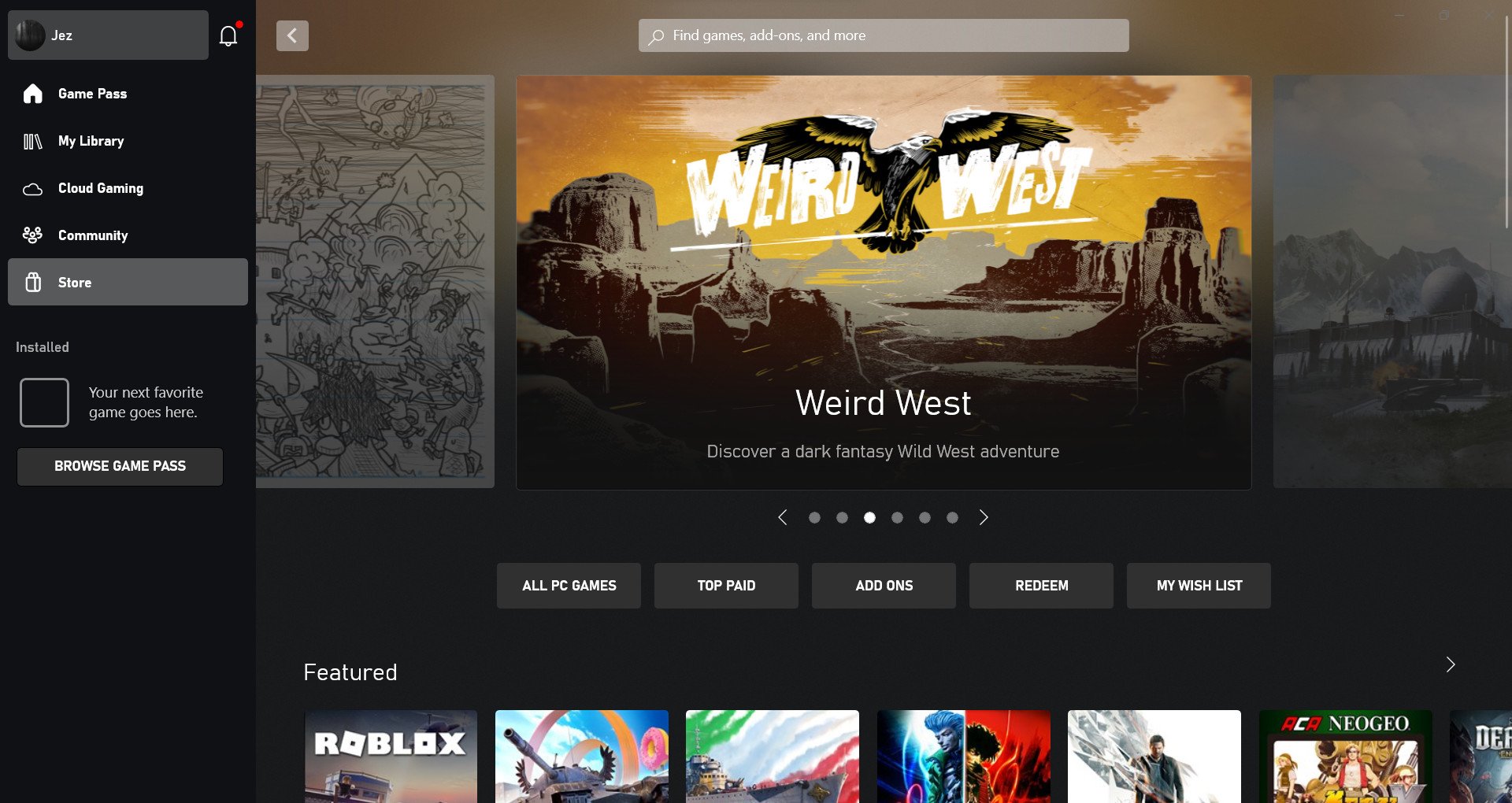Xbox should move its PC Game Pass operation to Battle.net
Microsoft is buying Activision Blizzard, and it could create some interesting problems.

All the latest news, reviews, and guides for Windows and Xbox diehards.
You are now subscribed
Your newsletter sign-up was successful
In February, recently acquired Microsoft subsidiary Bethesda announced it was shutting down its dedicated Bethesda launcher, moving the entirety of its PC gaming library to Steam and, much of it to the PC Game Pass "Xbox" app on Windows 10 and Windows 11. It makes a lot of sense for Microsoft's teams to consolidate their Windows platform offerings under the more popular store fronts, but if Microsoft acquires Activision Blizzard, they may have yet another consideration to make.
As of writing, the vast majority of Activision Blizzard's PC games are available exclusively via the Battle.net PC app. Battle.net was a pioneer in the space, established all the way back in 1996 to facilitate online matches in games like Warcraft and StarCraft. Since then, the app has grown into a platform for mega-hits like Call of Duty and World of Warcraft, serving as an in-game chat system across multiple titles under a unified Blizzard ID.
If Microsoft manages to acquire Activision Blizzard, they will effectively have two, separate, and competing gaming social networks across Xbox Live and Battle.net, which as of writing, don't communicate on the same platform. Battle.net has much of the same features as Xbox Live, with instant messaging, community groups, and voice chat, integrated throughout WoW, Overwatch, and many more. The truth is that Battle.net often does this better than Xbox Live too, which uses the aging Skype protocol for a back end, which could present some awkward questions for Microsoft in the future.
Should Microsoft ditch Xbox on PC for Battle.net?
A few years ago, Activision Blizzard almost killed the Battle.net brand, simply rebranding the launcher to the "Blizzard" app, or some such. The attempt was met with a furious backlash, which very quickly prompted them to cancel the branding change. Battle.net has decades of history behind it, much like Xbox Live, a brand that Microsoft also quietly wound down in favor of a more neutral "Xbox network" reference that literally nobody uses. The backlash against the Xbox Live branding going away was nowhere near as raucous as the attempt to ditch Battle.net, though, and I suspect if Microsoft attempted to close down Battle.net in the same way Bethesda shut down its launcher, the backlash would be similarly palpable.
The Microsoft of 2022 isn't tone-deaf enough to attempt to shut down Battle.net, I would like to think. Nobody shed a tear for the half-baked Bethesda launcher, which pales in comparison to Steam. Battle.net is a little bit more than a simple launcher though, it's tied to the Blizzard identity, which enjoys a Nintendo-like reverence in PC gaming canon. Or at least it did in the past. Many Blizzard fans current and former are hoping for Microsoft to eject Activision's money-obsessed executive layer and bring back a focus on quality at the legendary studio, although that remains firmly to be seen.
It's with this in mind that I ultimately pose the question: Should Microsoft ditch its Xbox branding on PC for Battle.net? Microsoft has struggled long and hard to reignite interest with PC gamers after its maligned Games for Windows Live DRM that I still see cited in discussions about Microsoft's PC commitment. Microsoft has built bridges, throwing full support towards Steam, alongside some truly great value with PC Game Pass, but it still has a very steep hill to climb.
Microsoft Gaming vs. Microsoft Windows
One of the biggest hurdles Microsoft's gaming division has right now for its PC operation is identity. The Windows team ultimately has a vastly divergent vision of what Windows should be from a regular PC gamer — who values control, optimization, and customization above all else. Windows 11 is one of the most rigid versions of Windows in the operating system's history, and the PC Game Pass "Xbox" app is, by extension, has also suffered from this rigidity. I can't help but feel like the Xbox app is the biggest barrier to PC Game Pass' growth on Windows right now.
All the latest news, reviews, and guides for Windows and Xbox diehards.
Only recently has the Xbox app gained the ability to open up PC games' files for modding tools, and it's still lacking many of those PC-oriented features that Steam enjoys. Irritatingly, the game versions on the Xbox app are often behind their Steam counterparts in features, thanks to Microsoft's UWP push that is now fading out, although this situation has gradually improved over time as well. The trade-off, generally, has been the value afforded by PC Game Pass. Microsoft seems content to sell retail versions of their PC games on Steam too. But games like World of Warcraft, Overwatch, and Heroes of the Storm are conspicuously missing from Steam, and enjoy millions of users without having to give Valve that very expensive commission.
I can't help but feel like the Xbox app is the biggest barrier to PC Game Pass' growth on Windows right now.
Microsoft may well simply seek to include those games on Steam too, given their support for the platform, and the potential for new users that Steam charts and algorithms may bring. However, I feel like they would be missing an opportunity to build up their image as a PC-first gaming publisher if they ditched Battle.net entirely.
Battle.net is not quite up to par with Steam by any means, but as an app, Battle.net is better in practically every way than the Xbox PC gaming app on Windows 10 and Windows 11. It's faster for one thing, but also is more intuitive, with consistent menus and design, pervasive access to social features, easy access to game files, game news, and sales. Most of these features are up front and center on a single page, too, unlike the Xbox app, which is split into various sections and segments with contrasting designs, owing to the fact different parts are owned by different divisions within Microsoft. The messaging features are more rapid, require fewer clicks and menu hops, and crucially, don't take a thousand years to load. Xbox Live's messaging system feels like it's stuck in the '90s, which in an age of Telegrams, Discords, and Whatsapps, simply doesn't cut it. Battle.net's chat system also hooks directly into games too, which Xbox Live chat is simply woefully too slow to even be considered for.
Bringing Xbox to PC
I could write a separate article on how Windows 11's design is pushing gamers away in general, but that's for another time. If Microsoft's gaming division can't cut through the bureaucracy that is the Windows Store and all of its horribleness, the gaming division should just ditch them entirely, and build a better system that is more forward-facing and consumer-oriented.
The current iteration of Battle.net for sure has its flaws too, but it's light-years ahead of what Microsoft has on PC for its gaming tools right now.
Ditch the sluggish back end for messaging and use whatever it is that Blizzard uses. Ditch the Windows Store systems and use Battle.net to build a new PC store. I wouldn't reject the idea of ditching the Xbox branding entirely on PC to fully embrace Battle.net instead. Build Battle.net up as the centralized bridge between the Xbox console and Microsoft PC gaming ecosystem on Windows, with a brand that actually has some form of clout in the space.
The Xbox app has very, very gradually improved in recent months, with a fresh new version as part of the Xbox Insider Program. I just wonder if the entanglement to Windows is holding back the program in its entirety. The Windows Store is truly unfit for purpose when it comes to delivering video games, and all of its haughty rigidity is antithetical to what PC gaming is, and always has been.
The current iteration of Battle.net for sure has its flaws too, but it's light-years ahead of what Microsoft has on PC for its gaming tools right now, and if you are dropping almost $70 billion dollars, you might as well use all of the tools available to you. In the future, Battle.net could be a better vehicle for PC Game Pass, Halo, Gears of War, Forza, and Windows PC gaming in general, in a world that still hasn't forgotten Games for Windows Live, and still hates the Windows Store.

Jez Corden is the Executive Editor at Windows Central, focusing primarily on all things Xbox and gaming. Jez is known for breaking exclusive news and analysis as relates to the Microsoft ecosystem — while being powered by tea. Follow on X.com/JezCorden and tune in to the XB2 Podcast, all about, you guessed it, Xbox!



